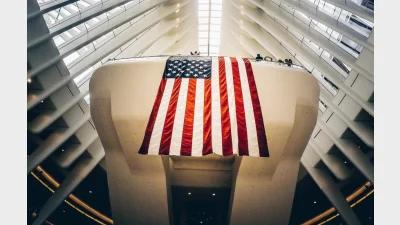AI is the long-term game changer, say super funds



Australian super fund leaders have flagged AI as a major force reshaping the global economy and investment landscape, stressing the importance of responsible use and long-term thinking to harness its full potential.
Speaking at the Australian Council of Superannuation Investors (ACSI) conference last week, both Vicki Doyle, chief executive of Rest Super, and John Pearce, chief investment officer at UniSuper, said AI is no longer a distant horizon, but a transformative shift that is already reshaping the world.
“It is going to be core to changing our world,” Doyle said.
Rest Super has established itself as a forward-thinking investor in AI, having backed Nvidia early on, before the company’s share price soared. The super fund further strengthened its AI credentials by partnering with Quinbrook over a year ago, committing more than $1 billion to the firm’s green data centres and sustainable digitisation project in North Brisbane.
Doyle highlighted the partnership at the event, emphasising how it integrates Rest’s AI strategy with its commitment to renewable energy.
“They’re [Quinbrook's data centres] located near the electricity grid so that they can be part of the internet superhighway and be effectively renewable energy 24/7. Now that is an amazing thing," she said.
But while Doyle is optimistic about AI’s potential, she also underscored the social and ethical risks that must be addressed - particularly around bias and stereotyping perpetuated by machine learning systems.
“We all know the social risks in AI,” she said. “That bias that is perpetuated around stereotypes in AI is a real concern. Within our investment portfolio … there are companies really thinking deeply about that.”
Ultimately, Doyle noted, the emergence of AI mirrors the early days of climate-conscious investing.
“It’s a bit like when we started the climate journey maybe 10 years ago, we’re starting to see companies get more to the forefront on how they will balance these issues and get ahead of them,” she said.
From an investment stewardship perspective, Doyle said Rest will continue to play an active role in both allocating capital and engaging with companies on responsible AI practices.
John Pearce, chief investment officer at UniSuper, echoed the long-term significance of AI, not only as a powerful technology but as a structural shift in global productivity.
“The impact of technology is always overestimated in the short term, and underestimated in the long term,” Pearce said. “We already know the impact in the short term, the Nvidia’s, the hyperscale’s of the world.”
He pointed to recent developments in China, where state-owned enterprises are rapidly adopting DeepSeek, as evidence of a global acceleration.
“It’s a game-changer in China. I’ve just come back from Asia, and DeepSeek is being integrated across industries. It’s a really, really big deal,” he said.
According to Pearce, AI could be the answer to one of the biggest economic challenges of recent decades - the global slowdown in productivity growth.
“Where was the next big leap of productivity going to come from?” he asked, adding that outside the US, productivity has been in structural decline.
“What’s really exciting about AI is productivity benefits,” he said, pointing to examples, like 20 per cent gains in supply chain quality control.
However, Pearce warned that the most significant gains will take time and require businesses to rethink how they operate from the ground up.
“You can’t just lock on a new piece of software to your current way of doing business, you have to rethink the way you do business,” he said.
“But the big game changer will come much longer down the track, because to get the big gains you have to fundamentally change the way you do business.”
Is the AI thematic immune to tariffs?
While semiconductors have so far been spared from the latest round of tariffs, the broader AI value chain is feeling the ripple effects.
Industry players are now grappling with heightened uncertainty around cloud spending, data centre leasing, and the pace at which enterprises will continue adopting AI solutions.
“It is not that everything slows down, but everything gets second guessed i.e., prolonged uncertainty,” Global X’s Billy Leung told Super Review.
So far, he noted, the major cloud providers, including members of the Magnificent Seven, remain committed to their AI ambitions, with capex forecasts this year hovering around US$330 billion.
But, Leung admitted, the focus is shifting.
“Investors are asking tougher questions, and the market is clearly leaning towards use cases with more tangible productivity gains. Inference over training software over infrastructure. However, this should be good for adopters and key software companies such as those we’ve seen in China,” he said.
“Data centres are right in the middle of that shift. Operators with broader customer bases and stronger pricing power look better placed right now. If you are tied too closely to AI training or hyperscaler leasing you are likely to feel more pressure until the outlook clears.”
Drawing on previous shocks like the GFC, COVID-19, and geopolitical tensions, Leung added: “Growth fears and tariffs do not stop innovation they just recalibrate it”.
“We could see a faster move toward localisation and AI tools that help protect margins. Think enterprise automation supply chain visibility and anything that improves efficiency without blowing out costs”.
Recommended for you
The era of “US exceptionalism” may be drawing to a close, with widespread implications for global markets, currencies, and interest rates, but the message from the super sector is funds remain well-positioned to weather the volatility.
UniSuper’s investment strategy in decarbonisation remains firmly rooted in economic viability rather than political shifts, according to its chief investment officer.
In what is being called a co-ordinated cyber attack, a number of Australia’s largest superannuation funds have suffered a breach with thousands of user accounts compromised.
Donald Trump’s tariff blitz has shaken global markets, fuelling uncertainty over trade retaliation, recession, and economic fallout, while Australia, though bruised, escapes relatively unscathed.












